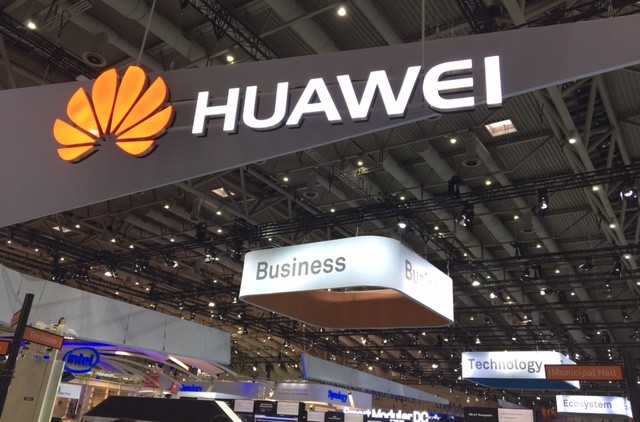

Google said over the weekend that it is cutting off Huawei’s access to some Android software and services, after the US administration added Huawei to a technology blacklist last week.
US chipmakers including Intel, Qualcomm, Xilinx and Broadcom have also told staff they will not supply critical software and components to Huawei until further notice, Bloomberg reported.
German chipmaker Infineon has also suspended shipments to Huawei while it assesses the legal implications of the US blacklist, the newspaper Nikkei Asian Review reported on Monday, in a move that sent European semiconductor shares lower on fears of disruption to the industry’s global supply chain.
Intel, Qualcomm, Xilinx, Broadcom and Infineon did not immediately respond to requests for comment.
Google said users of existing Huawei devices, including those already sold or in stock globally, would continue to be able to access Google Play and Google Play Protect security services.
However, the blacklist means that future Huawei devices could be barred from using Google’s commercial version of Android, as well as losing access to the Google Play store and popular Google Android apps such as Gmail, Chrome and Google Maps.
“We are complying with the order and reviewing the implications,” Google said in a statement.
“For users of our services, Google Play and the security protections from Google Play Protect will continue to function on existing Huawei devices.”
Huawei said it would continue to provide security updates and after-sales services to all existing Huawei and Honor smartphones and tablets and to those already produced and in stock.
“We will continue to build a safe and sustainable software ecosystem, in order to provide the best experience for all users globally,” Huawei said.
The Chinese government said at a press briefing that it “supports” the right of Huawei to “defend its legitimate rights according to law”.
The US Department of Commerce late last week added Huawei to its so-called “entity list”, which makes it extremely difficult for the Chinese firm to buy parts or technology from US companies.
US suppliers, including chipmakers such as Qualcomm, which makes about 5 percent of its revenues from Huawei, require a licence to sell to companies on the list.
At the same time, US president Trump signed an executive order putting the US telecoms sector into a state of “national emergency”, which enables the commerce department to prohibit transactions posing an “unacceptable risk” to national security.
In practice, the order means the US government can block sales of Huawei technology to telecoms firms in the country.
The moves followed days after a sharp escalation in trade tensions between the US and China, with the US hiking tariffs on Chinese goods and China responding in kind.
Japan, Australia and New Zealand are amongst the countries that have placed restrictions on Huawei’s participation in building their next-generation 5G telecoms networks, at the urging of the US.
The blacklist and Google’s restrictions are a severe blow to Huawei’s smartphone ambitions, industry watchers said.
While they are unlikely to affect users in China, where most Google services are inaccessible, Huawei’s operations in Europe – its second-largest market after China – are likely to be damaged.
“Having those apps is critical for smartphone makers to stay competitive in regions like Europe,” said CCS Insight vice president of research Geoff Blaber.
The ban does not affect Huawei’s access to the the Android Open Source Project (AOSP), a basic version of Android available via an open source licence.
The company has also developed its own operating system in expectation of a ban, Huawei told German newspaper Die Welt earlier this year.
Huawei smartphones are already largely powered by chips developed in-house, including their core processors and modems.
The company became the world’s second-largest smartphone maker last year and has said it wants to overtake Samsung to become No. 1 in the field by next year.
DeepMind co-founder Demis Hassabis says top universities, tech talent give UK key edge in fast-moving…
BYD says new electric vehicle platform can charge at 1,000 kW power, giving 400 kilometres…
Incoming Intel chief executive Lip-Bu Tan considering cuts to middle management, revamp of Intel Foundry,…
South Korean chip exports to China fall by nearly one-third after US government restricts sales…
Telegram founder Durov permitted to temporarily leave France as authorities continue probe into criminal activity…